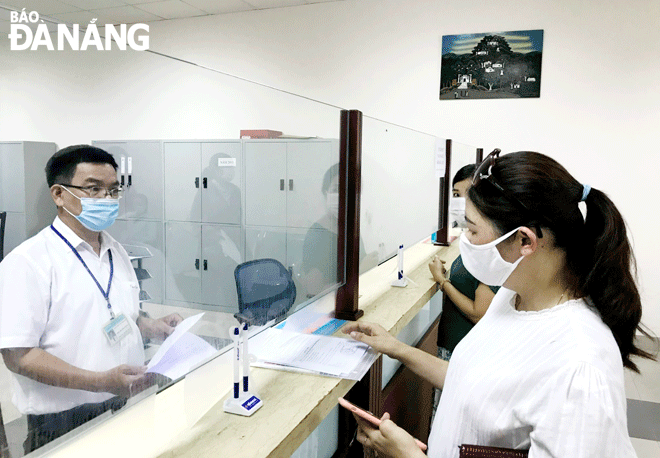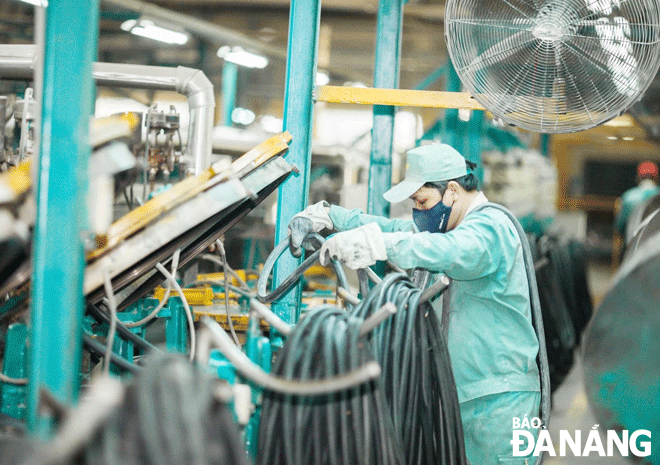Da Nang sees positive signals from domestic budget collections
As reported by the Da Nang Tax Department, Da Nang’s domestic budget revenue in the first two months reached 25.5% of the year’s estimate as assigned by the national government, and many types of taxes were collected faster than the schedule. These are positive signals, creating momentum for the city's financial industry, and the tax industry in particular, to complete the budget collection targets in 2022.
 |
| Production and business activities have gradually recovered, creating momentum for revenue collections to prosper. An officer of the Da Nang Tax Department (left) handles tax procedures and policies for citizens at the ‘One-stop shop’ unit. Photo: M.QUE |
As of February 28, the city’s total domestic revenue had reached VND3,846.7 billion, equal to 25.5% of the estimate assigned by the national government with VND15,108 billion.
In detail, tax collection rate from state-owned enterprises managed by the national government reached 25.4%, whist that from State-owned enterprises under municipal management was 20%, from State-invested enterprises 21.6%, non-State economic sector 23.2%, personal income tax 35.8%, registration fees 22.8%, other fees and charges 33.2%, non-agricultural land use tax 76.5%, land and water surface rent 21.3%, land use fee collection 32.3%, and the granting of rights to exploit minerals and water resources 21.3%.
The remaining taxes such as environmental protection taxes and other revenue from the budget basically still ensured the progress.
According to the Da Nang Tax Department, the progress of budget collection has been quite good thanks to the gradual recovery of economic activities, such as revenue from the State-owned enterprises that increased tax payments such as the Central Power Corporation and the Da Nang Rubber Joint Stock Company.
In addition, the real estate market is gradually ‘warming up’, so personal income tax from real estate transfer is also going upward.
In addition, a 50% cut for the registration fee for domestically-produced or assembled cars from December 1, 2021 to the end of May, 2022 has helped stimulate car sales, which means more car buyers make the payment of registration fees.
In general, the main tax types have been quite well collected. However, in the face of the complicated COVID-19 pandemic as well as the influence of many factors on economic recovery, the city's tax administration developed scenarios and appropriate collection plans for each month and quarter of the year, with a focus on supporting taxpayers and businesses.
 |
| Working activities are observed at the Da Nang Rubber Joint Stock Company. Photo: M.QUE |
Notably, the reduction of the value-added tax rate (VAT) from 10% to 8% in 2022 for applicable goods and services helps stimulate shopping demand and promote production and business activities.
Besides, an important task being carried out by the Da Nang tax administration is the coverage of e-invoices. Accordingly, Da Nang is one of the 57 provinces and cities across the country that have applied e-invoices from April 2022 whilst the remaining ones will follow them by July 1, 2022.
According to Mr. Truong Cong Khoai, the application of e-invoices will create a good premise for the tax industry to complete its budget collection tax, thus contributing to the achievement of the city's socio-economic development goals in the coming time.
In the near future, the Da Nang Tax Department will establish a deployment operation centre as well as a hotline to promptly handle problems related to e-invoices.
Reporting by MAI QUE – Translating by A.THU








